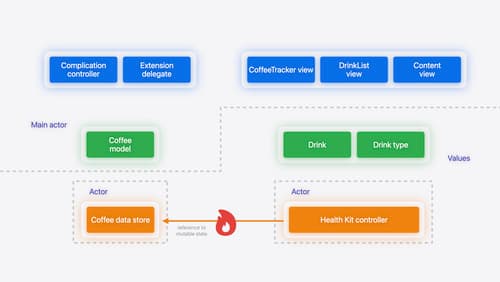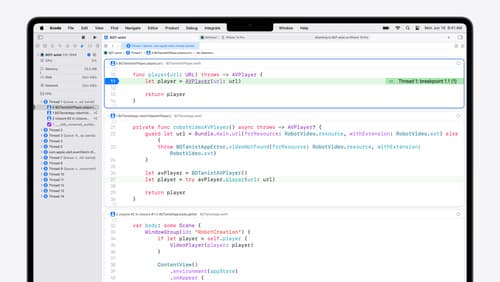What is the “@Observable” ?
Asked on 2024-09-06
1 search
The @Observable is a feature in Swift that is used to declare a type as observable, which is particularly useful in SwiftUI applications. It allows SwiftUI views to automatically update when the data they depend on changes. This is part of Swift's concurrency model, which helps manage shared mutable state safely and efficiently.
In the context of the WWDC sessions, the concept of observability and concurrency is discussed in the session titled "Migrate your app to Swift 6," where the importance of managing shared mutable state and ensuring data-race safety is emphasized. This session covers how Swift 6 introduces features to handle concurrency and data races, which are crucial for making applications more robust and efficient.
For more detailed information, you might want to check out the session Migrate your app to Swift 6 (17:04) where shared mutable state in global instances and functions is discussed.

Migrate your app to Swift 6
Experience Swift 6 migration in action as we update an existing sample app. Learn how to migrate incrementally, module by module, and how the compiler helps you identify code that’s at risk of data races. Discover different techniques for ensuring clear isolation boundaries and eliminating concurrent access to shared mutable state.

What’s new in Xcode 16
Discover the latest productivity and performance improvements in Xcode 16. Learn about enhancements to code completion, diagnostics, and Xcode Previews. Find out more about updates in builds and explore improvements in debugging and Instruments.

A Swift Tour: Explore Swift’s features and design
Learn the essential features and design philosophy of the Swift programming language. We’ll explore how to model data, handle errors, use protocols, write concurrent code, and more while building up a Swift package that has a library, an HTTP server, and a command line client. Whether you’re just beginning your Swift journey or have been with us from the start, this talk will help you get the most out of the language.
